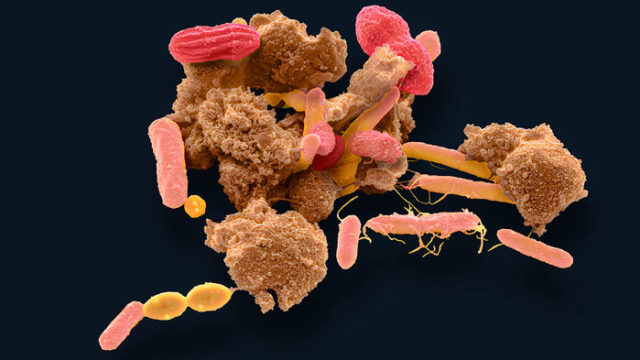Some relationships are short lived, but some are for life—like the mutually beneficial partnership between a person and the trillions of bacteria in their gut. But as you and your microbiome grow old together, things can get a little out of whack. Now, a new study in mice suggests aging can indeed change the microbiome—and in some cases, a poop transplant could set it right.
Fecal microbiota transplants, in which the gut microbiome from a healthy person is used to treat someone who is sick, are not a new therapy; the earliest known account dates back to fourth century China, when a doctor named Ge Hong told patients they could cure their diarrhea by consuming fresh stool from a healthy neighbor. More recently, doctors have shown in clinical trials that fecal transplants are an effective treatment for stubborn Clostridium difficile infections; they have also tried to use them for inflammatory bowel disease and constipation.
Biologist Clea Bárcena and her colleagues at the University of Oviedo in Spain knew that aging and age-related diseases often go hand-in-hand with intestinal dysbiosis, in which the balance between the many species of bacteria in the gut is disturbed. So, they decided to examine the microbiota in five children with progeria, a genetic disorder that causes premature aging and death. They also looked at the microbiota of more than a dozen mice genetically modified to exhibit progerialike symptoms.Read More..










